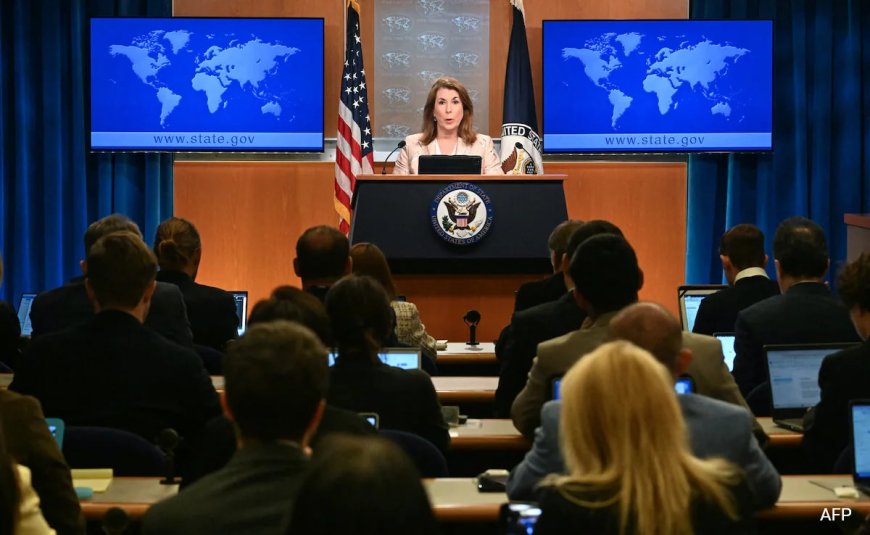US State Department Spokesperson Shuns Pak Journalist Over Pahalgam Attack
US State Department spokesperson Tammy Bruce shunned a Pakistani journalist's questioning over India-Pakistan border tensions following the terrorist attack in Jammu and Kashmir's Pahalgam, which claimed the lives of 26 people.

US State Department Spokesperson Shuns Pak Journalist Over Pahalgam Attack
In a recent development that has drawn international attention, a spokesperson from the US State Department publicly shunned a Pakistani journalist during a press briefing regarding the tragic attack in Pahalgam. This incident not only highlights ongoing tensions but also raises questions about media representation and diplomatic communication in crises.
Context of the Pahalgam Attack
On [insert date], Pahalgam, a picturesque town in Jammu and Kashmir, witnessed a horrific attack that resulted in several casualties. The incident sent shockwaves across the region, prompting responses from various governments and international bodies. As news of the attack circulated, the spotlight shone on the role of journalism in covering sensitive issues related to conflicts and terrorism.
The Exchange Between the US Spokesperson and the Journalist
During the press conference, tensions escalated when the Pakistani journalist attempted to question the spokesperson about the US stance on the recent attack. The spokesperson dismissed the question, suggesting that it was not the right forum for such inquiries. This interaction has sparked discussions about the challenges journalists face when reporting on geopolitical issues involving multiple nations.
The Implications of the Incident
This exchange underscores the complex nature of diplomacy, especially in the context of South Asian politics. The US has historically had a multifaceted relationship with Pakistan, and incidents like these can strain bilateral communication. Furthermore, the way journalists are treated at press briefings can influence how international narratives are shaped and perceived.
Public Reactions and the Way Forward
Reactions to the spokesperson's behavior ranged from frustration to support, with many arguing that journalists must be allowed to pose critical questions, especially concerning human rights and security. Advocates for press freedom emphasized the need for a more inclusive approach at such briefings to ensure that all media representatives, regardless of their nation's stance, can contribute to important conversations.
Conclusion
The incident at the press briefing serves as a reminder of the delicate balance between diplomacy and the free press. As the situation in Pahalgam continues to unfold, it is imperative for all parties involved to foster open communication, allowing journalists to fulfill their role of informing the public and holding powers accountable. For more updates, visit dharmyuddh.com.
In conclusion, while the US State Department spokesperson's dismissal of a Pakistani journalist may have momentarily overshadowed the critical subject of the Pahalgam attack, it also highlights a larger conversation about the need for transparency and open discourse in international relations. Keywords: US State Department spokesperson Pahalgam attack, Pakistani journalist shunned, media representation in crises, US Pakistan relations, diplomacy and journalism, press freedom in international forums, geopolitical tensions in South Asia, Pahalgam incident reactions, diplomatic communication and media, Pakistani journalist press briefing.







